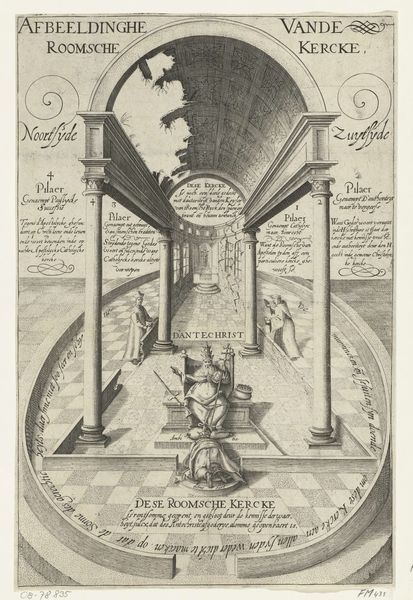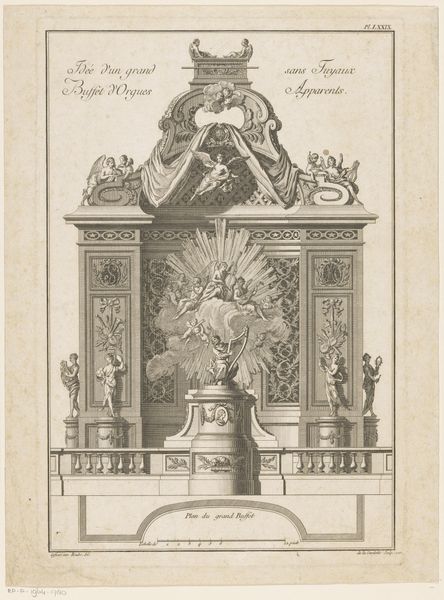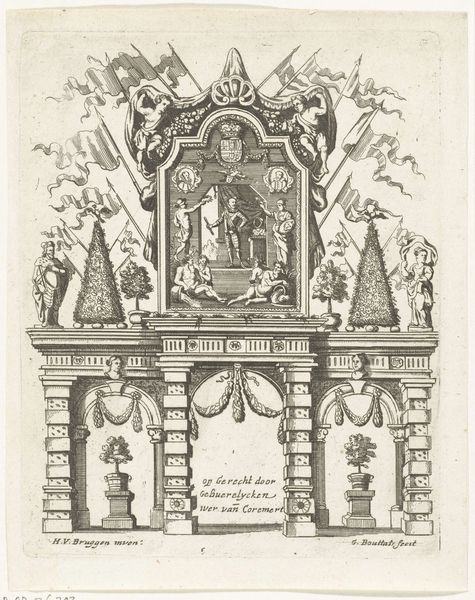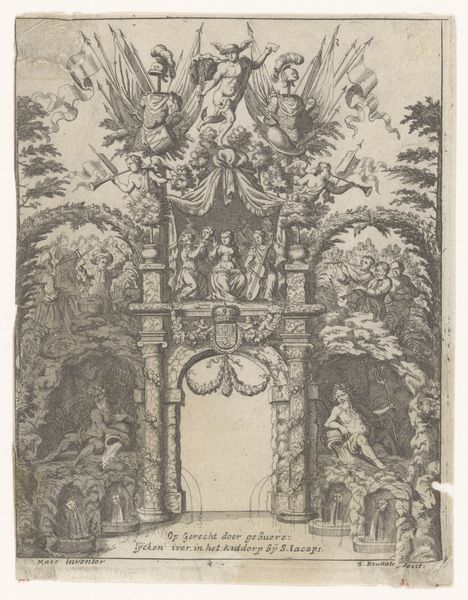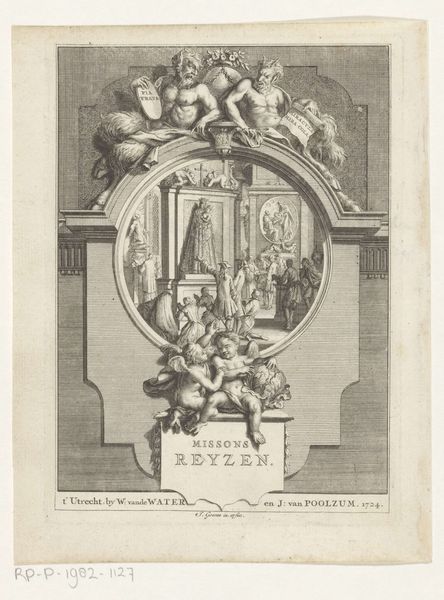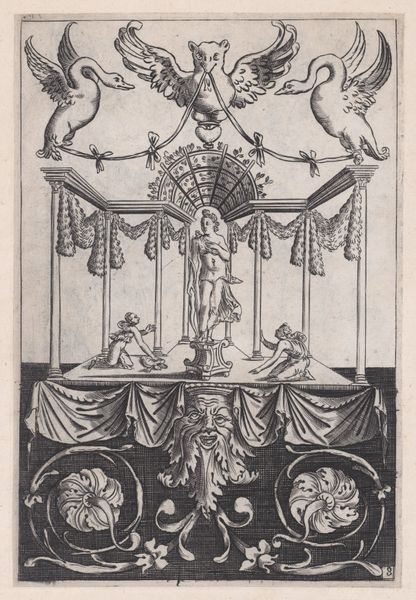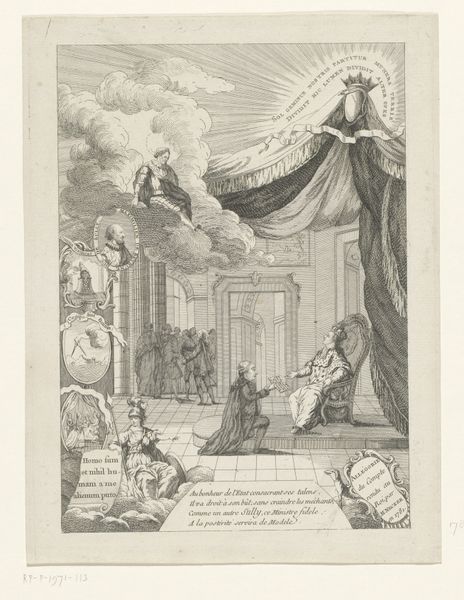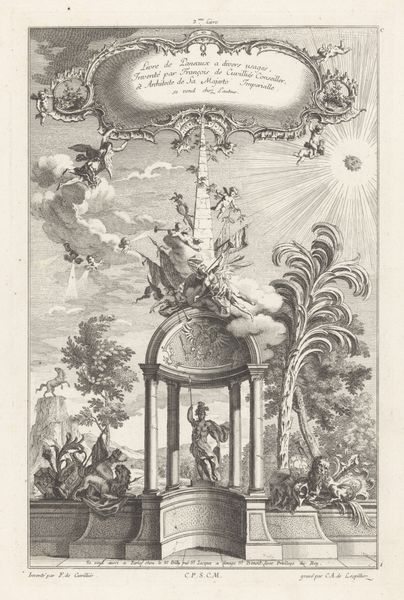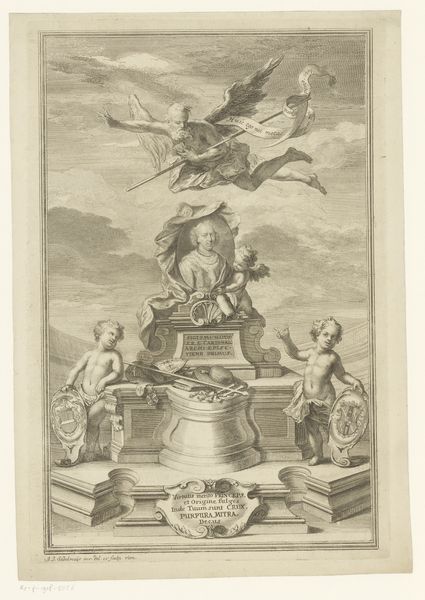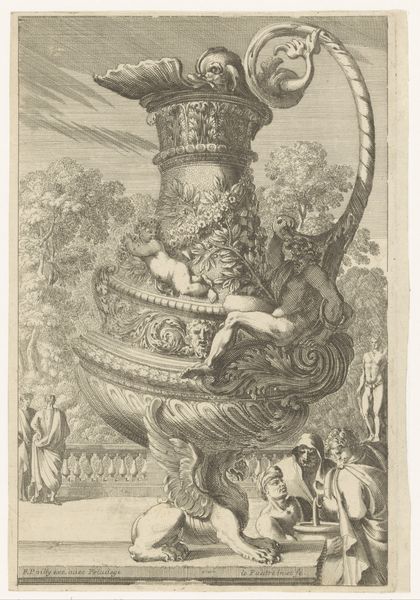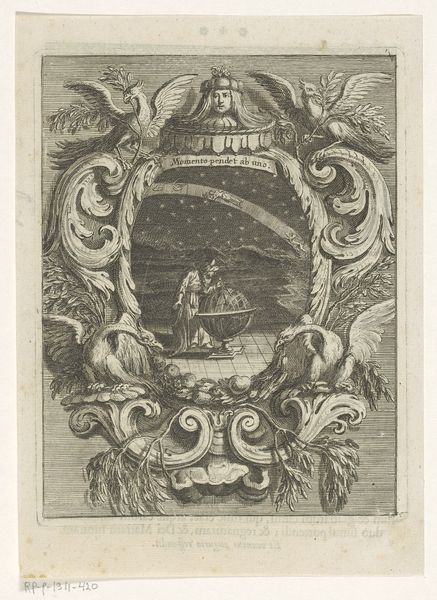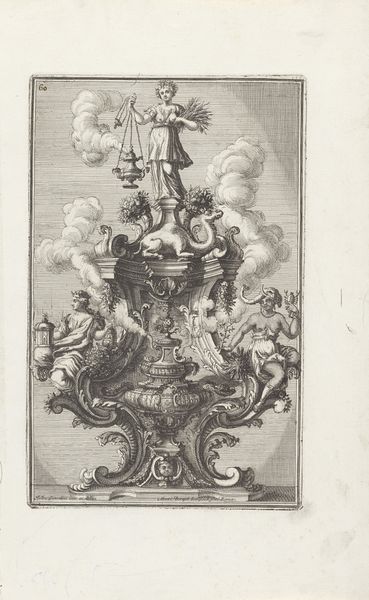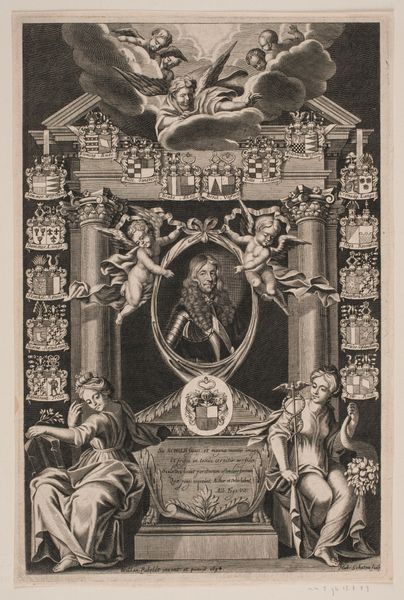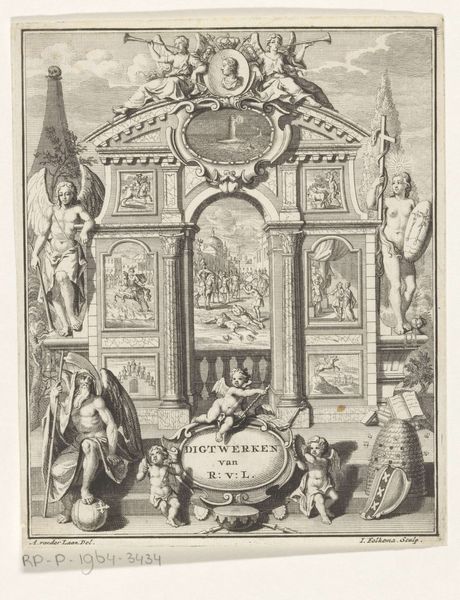
drawing, print, pen, engraving, architecture
#
drawing
#
baroque
#
pen drawing
# print
#
pen
#
history-painting
#
engraving
#
architecture
Dimensions: height 164 mm, width 130 mm
Copyright: Rijks Museum: Open Domain
Editor: This pen drawing by Gaspar Bouttats, "Triomfpoort opgericht door de jezuïeten op de Meir," was created before 1685 and now resides in the Rijksmuseum. I'm struck by the incredibly detailed architecture and how the archway seems to lead to nowhere. What can you tell me about the triumphal arches in art of that era? Curator: Well, triumphal arches were incredibly potent symbols of power and propaganda. Their construction and depiction in art served a clear social function: to celebrate victories, honor rulers, and solidify institutional authority. Think about the context: the Jesuits were a powerful order. Commissioning art like this was about asserting their presence and influence in urban spaces. Editor: So the architecture itself becomes a political statement? Curator: Precisely. Notice how the arch isn't just a decorative element. Consider what’s missing, a logical street, a background perspective. This incomplete element makes us stop and consider the cultural elite commissioning the work. What audience are they looking to sway? Who is the triumphal arch "for"? What kind of victory did the Jesuits intend to declare? Editor: I hadn't thought about it that way. Seeing it as a tool for the Jesuits to broadcast their might makes more sense. Curator: Yes, and understanding the historical and political forces at play gives us a far richer appreciation for what this artwork communicates about its time. Editor: It changes how I see the role of art completely, not just as something beautiful, but as active in society. Curator: Absolutely, recognizing this can transform how we view images from this era and beyond.
Comments
No comments
Be the first to comment and join the conversation on the ultimate creative platform.
